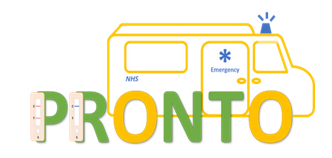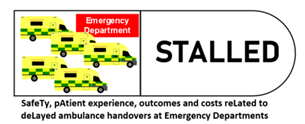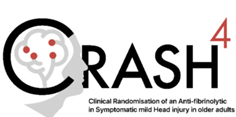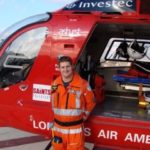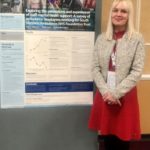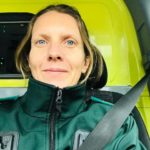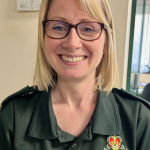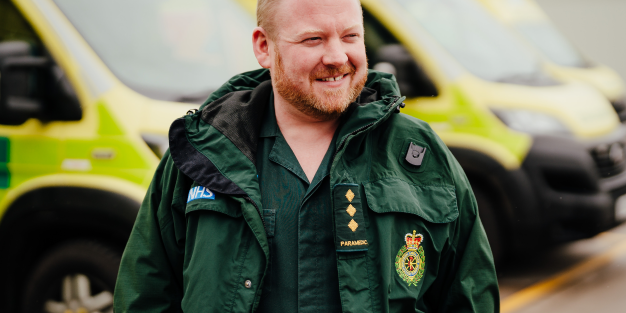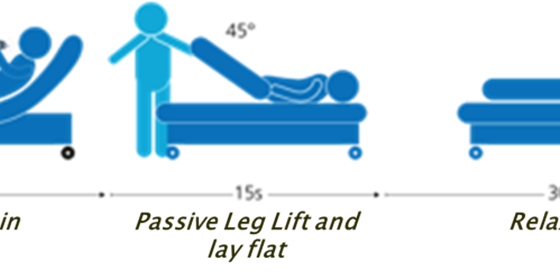Kirby K., Voss S., Bird E., Benger J., (2021) Features of Emergency Medical System calls that facilitate or inhibit Emergency Medical Dispatcher recognition that a patient is in, or at imminent risk of, cardiac arrest: A systematic mixed studies review. Resusc Plus. 2021 Nov 18;8:100173. doi: 10.1016/j.resplu.2021.100173. PMID: 34841368; PMCID: PMC8605417. https://pubmed.ncbi.nlm.nih.gov/34841368/
Stokes E., Lazaroo M., Clout M., Brett S., Black S., Kirby K. et al. (2021) Cost-effectiveness of the i-gel supraglottic airway device compared to tracheal intubation during out-of-hospital cardiac arrest: Findings from the AIRWAYS-2 randomised controlled trial. Resuscitation. 167:1-9. https://doi.org/10.1016/j.resuscitation.2021.06.002
Goodwin L., Proctor A., Kirby K. et al. (2021) Staff stakeholder views on the role of UK paramedics in advance care planning for patients in their last year of life. Progress in Palliative Care.https://doi.org/10.1080/09699260.2021.1872140
Schofield B., Voss S., Proctor A., Benger J., Coates D., Kirby K. et al. Exploring how paramedics are deployed in general practice and the perceived benefits and drawbacks: a mixed-methods scoping study. BJGP Open. 2020 ;4(2). DOI: 10.3399/bjgpopen20x101037. PMID: 32398344; PMCID: PMC7330225. https://doi.org/10.3399/bjgpopen20x101037
Kirby K., Brandling J. et al. (2020) The experiences of EMS providers taking part in a large randomised trial of airway management during out of hospital cardiac arrest, and the impact on their views and practice. Results of a survey and telephone interviews. Resuscitation. 149:1-9. https://doi.org/10.1016/j.resuscitation.2020.01.034
Thomas M., Voss S., Benger J., Kirby K., Nolan J. (2019) Cluster randomised comparison of the effectiveness of 100% oxygen versus titrated oxygen in patients with a sustained return of spontaneous circulation following out of hospital cardiac arrest: a feasibility study. PROXY: post ROSC OXYgenation study. BMC Emergency Medicine. 2019 Jan 25;19(1):16. doi: 10.1186/s12873-018-0214-1. https://dx.doi.org/10.1186%2Fs12873-018-0214-1
Green J., Kirby K., and Hope S. (2018) Ambulance clinicians’ perceptions, assessment and management of frailty: thematic analysis of focus groups. British Paramedic Journal. 3(3):23-33. https://doi.org/10.29045/14784726.2018.12.3.3.23
Benger JR, Kirby K, Black S, et al. (2018) Effect of a Strategy of a Supraglottic Airway Device vs Tracheal Intubation During Out-of-Hospital Cardiac Arrest on Functional Outcome. The AIRWAYS-2 Randomized Clinical Trial. JAMA. 2018;320(8):779–791. http://dx.doi.org/10.1001/jama.2018.11597
Voss S., Brandling J., Taylor H., Black S., Buswell M., Cheston R., Cullum S., Foster T., Kirby K., Prothero L., Purdy S., Solway C., Benger J. R. (2018) How do people with dementia use the ambulance service? A retrospective study in England: the HOMEWARD project. BMJ Open 2018;8:e022549. http://dx.doi.org/10.1136/bmjopen-2017-016651
Rajogopal S., Booth S., Brown T., Ji Chen., Hawkes C., Siriwardena N., Kirby., Black., Spaight R., Gunson I., Brace McDonnell S., and Perkins G. (2017) Data quality and 30-day survival for out-of-hospital cardiac arrest registry: A data linkage study. BMJOpen. 2017;7:e017784. http://dx.doi.org/10.1136/bmjopen-2017-017784
Stanley J., Kirby K., Robinson M., (2017) Prehospital lactate testing in the recognition and management of sepsis and septic shock: A proof of concept study. Journal of Paramedic Practice. 9(2):67-70.
Kim Kirby, Stephanie Moreland, and John Pollard (2016) The impact of working shifts: exploring the views of UK paramedics. Journal of Paramedic Practice. 2016 8:5, 252-257. https://doi.org/10.12968/jpar.2016.8.5.252
Kim Kirby (2013) Pre-hospital lactate testing in the identification of patients with sepsis: a review of the literature. Journal of Paramedic Practice. 2013 5:12, 698-703. https://doi.org/10.12968/jpar.2013.5.12.698





